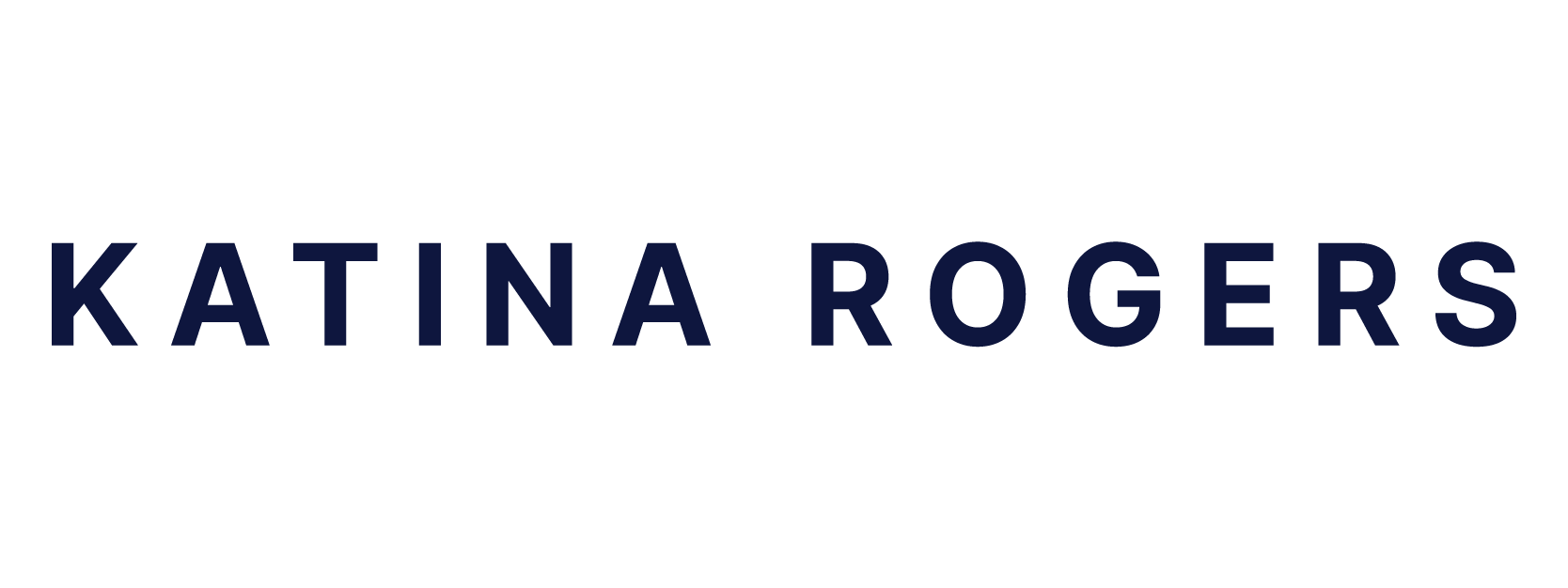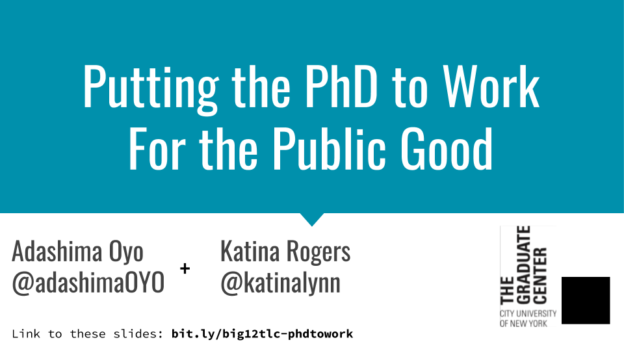Today, our Futures Initiative team—graduate students, postdoc, and staff—will be taking a step back to consider how we are doing relative to our stated programmatic goals. The two things that I find most important about this temperature check are (1) that the suggestion came from within the group, not from administration; and (2) that we’ll be pausing to evaluate not only our public-facing work, but also the quieter, less visible side of what we do: our individual work, our group dynamic, and the day-to-day ways that we may or may not be inching towards a more equitable system of higher education. Through the discussion, we’ll be looking for ways that we can bring our individual and collective goals into closer alignment, and ways we can improve our own practices.
I direct our group of fellows, and one of my major goals as the program enters its third year has been to cultivate trust, openness, and leadership among our team—and the fact that this discussion is happening is an encouraging sign that we are moving in that direction. The Futures Initiative is unusual in the degree of ownership that graduate students take in shaping and running the program. Each fellow has a specific domain in which they take the lead, such as web development, social media, research, communications, and even directing sub-programs like HASTAC Scholars or our peer mentoring program. We continually refine the structures that govern our time and energy, not only for efficacy, but to foster reflection about the connections between our programmatic goals, our individual hopes and challenges, and each fellow’s ongoing scholarly development.
Our team’s weekly meeting structure has been one of the key elements in working toward the kind of dynamic that will not only help our program to succeed, but more importantly, will create unique opportunities for connection, collaboration, and growth. As many teams do, we gather weekly to report on our individual projects and progress. The fellows take turns leading these meetings, giving them the chance to lead their peers while also establishing structures that will ensure all voices are heard. The meetings are not long, but recently, we have been making it a point to spend time on personal updates—giving us all a moment to talk about achievements, challenges, self-care, and more. In the unreal political climate that we’re currently facing, these moments of connection and vulnerability have been incredibly valuable.
The ways we structure our group’s work reflects our aim of developing integrative structures in higher education—systems that emphasize meta-cognition as we reflect together on what we are doing, how we’re doing it, and where there might be points of connection that we hadn’t anticipated. The fellows are all gaining crucial professional skills, too—everything from event planning to communications to leadership and collaboration more broadly. As I have written elsewhere, learning these kinds of skills—especially in the service of projects that students find meaningful—is incredibly beneficial to students’ likelihood of success in any career, whether in the classroom or in any number of professional contexts.
For the Futures Initiative, these skills are not ends in themselves, but tools to empower the next generation of leaders to continue building systems that work toward equity and public reinvestment in higher education. As a program, we are constantly working toward institutional change—not only through the content of our public programming, but through our work structures and our shared values.
We have a long way to go. While I strive to make decisions that reflect a commitment to our values of equity, social justice, and student-centered learning, sometimes I act out of expediency instead. We are working to see our own blind spots, to engage voices that challenge our own perspectives, and to consider ways that we can be more deeply collaborative—all of which can be difficult and uncomfortable. We will likely uncover tensions and challenges in today’s conversation. By creating the space for these tensions to come to light, we can collectively transform them into opportunities to grow.

